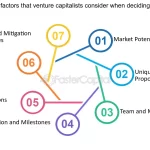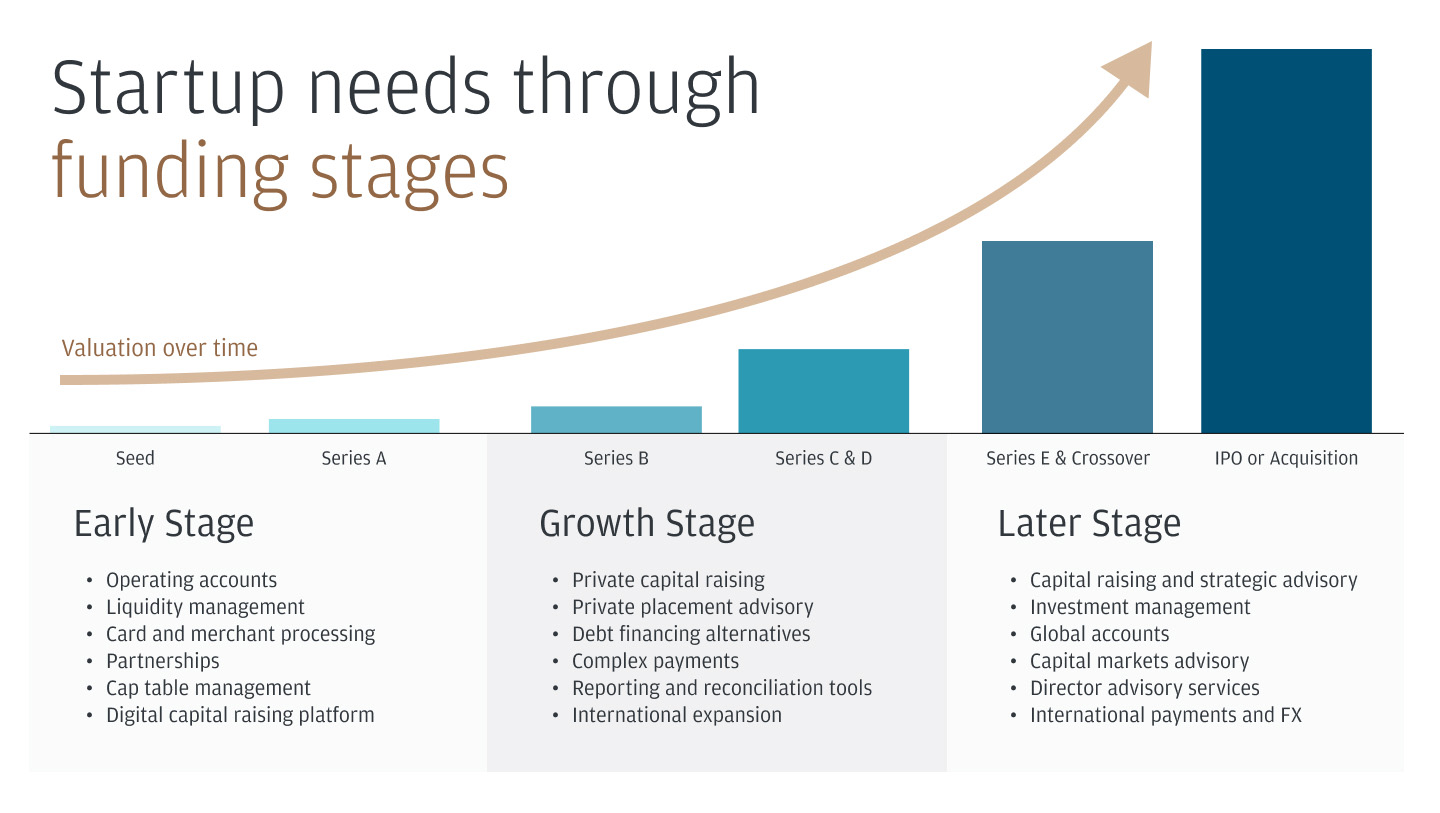Tokyo, a global hub for innovation and technology, is home to a thriving startup ecosystem supported by a dynamic network of venture capital firms. These firms play a pivotal role in fueling the growth of emerging businesses, from cutting-edge tech startups to groundbreaking ventures in fintech, biotech, and beyond. With its unique blend of traditional industries and modern advancements, Tokyo attracts both local and international investors eager to tap into Japan’s entrepreneurial potential. This article explores some of the prominent venture capital firms based in Tokyo, shedding light on their investment strategies, focus areas, and contributions to shaping the future of innovation in one of the world’s most vibrant cities.
- What Are Some Tokyo Based Venture Capital Firms?
- What is the largest Japanese venture capital?
- What is the most prestigious VC firm?
- What are Tier 1 VCs?
- Does JP Morgan have venture capital?
- Does JP Morgan Have a Venture Capital Arm?
- What Types of Companies Does JP Morgan Invest In?
- How Does JP Morgan's Venture Capital Differ from Traditional VC Firms?
- What Are the Key Sectors for JP Morgan's Venture Capital Investments?
- What Are the Benefits for Companies Receiving JP Morgan's Venture Capital?
- Frequently Asked Questions from Our Community
What Are Some Tokyo Based Venture Capital Firms?
Tokyo is a thriving hub for innovation and entrepreneurship, attracting numerous venture capital (VC) firms that invest in startups and emerging businesses. These firms play a crucial role in fostering growth and innovation in industries such as technology, healthcare, fintech, and more. Below, we explore some of the prominent Tokyo-based venture capital firms and their contributions to the startup ecosystem.
1. Global Brain Corporation
Global Brain Corporation is one of the leading venture capital firms in Tokyo, focusing on early-stage and growth-stage investments. The firm has a strong presence in Japan and globally, with a portfolio that includes startups in artificial intelligence, IoT, and biotechnology. Global Brain is known for its hands-on approach, providing not only funding but also strategic support to help startups scale.
See Also What Are the Downsides of Being a Venture Capitalist?
What Are the Downsides of Being a Venture Capitalist?2. Incubate Fund
Incubate Fund is a prominent early-stage VC firm based in Tokyo, specializing in seed-stage investments. The firm has a strong track record of supporting startups in the technology and internet services sectors. Incubate Fund is particularly known for its founder-friendly approach and its ability to identify high-potential startups in their infancy.
3. WiL (World Innovation Lab)
WiL is a unique venture capital firm that combines corporate partnerships with startup investments. Based in Tokyo, WiL focuses on bridging the gap between large corporations and innovative startups. The firm invests in sectors such as AI, robotics, and enterprise software, helping startups leverage corporate resources for rapid growth.
4. DNX Ventures
DNX Ventures is a Tokyo-based VC firm that primarily invests in B2B and enterprise software startups. With a focus on cross-border investments, DNX Ventures helps Japanese startups expand globally and international startups enter the Japanese market. The firm is known for its deep industry expertise and strong network in the tech ecosystem.
See Also What Do Venture Capitalists Look for When Deciding to Invest in an Idea and a Team
What Do Venture Capitalists Look for When Deciding to Invest in an Idea and a Team5. Mitsubishi UFJ Capital
Mitsubishi UFJ Capital is the venture capital arm of the Mitsubishi UFJ Financial Group, one of the largest financial institutions in Japan. The firm invests in a wide range of sectors, including fintech, healthcare, and clean energy. With its strong financial backing and extensive network, Mitsubishi UFJ Capital plays a significant role in supporting innovative startups in Tokyo and beyond.
| Venture Capital Firm | Focus Area | Notable Investments |
|---|---|---|
| Global Brain Corporation | AI, IoT, Biotechnology | Mercari, Preferred Networks |
| Incubate Fund | Seed-stage, Technology | SmartNews, Kaizen Platform |
| WiL (World Innovation Lab) | AI, Robotics, Enterprise Software | Raksul, SmartDrive |
| DNX Ventures | B2B, Enterprise Software | Freee, BizReach |
| Mitsubishi UFJ Capital | Fintech, Healthcare, Clean Energy | Money Forward, Origami |
![[POD] Tokyo-based VC Schyler A Cole talks funding in Japan for sustainable business](https://i.ytimg.com/vi/qllbrfKyDSM/hqdefault.jpg)
What is the largest Japanese venture capital?

What is the largest Japanese venture capital firm?
The largest Japanese venture capital firm is SoftBank Vision Fund, managed by SoftBank Group. It is one of the most prominent and influential venture capital funds globally, with a focus on technology and innovation-driven startups. The fund has made significant investments in companies like Uber, WeWork, and Didi Chuxing, among others.
See Also What Are the Major Advantages of Being a Venture Capitalist?
What Are the Major Advantages of Being a Venture Capitalist?- SoftBank Vision Fund was launched in 2017 with an initial capital of over $100 billion.
- It primarily targets late-stage startups and unicorns in sectors like AI, robotics, and IoT.
- The fund is backed by major investors, including Saudi Arabia's Public Investment Fund and Apple.
How does SoftBank Vision Fund operate?
SoftBank Vision Fund operates by investing large sums of capital into high-growth companies, often taking significant equity stakes. The fund focuses on transformative technologies and businesses that have the potential to disrupt industries.
- It provides long-term capital to help companies scale globally.
- The fund often participates in mega-rounds of funding, sometimes exceeding $1 billion per investment.
- It leverages SoftBank's extensive network to offer strategic support to portfolio companies.
What industries does SoftBank Vision Fund focus on?
SoftBank Vision Fund focuses on industries that are at the forefront of technological innovation. These include artificial intelligence, robotics, fintech, and biotechnology, among others.
- Artificial Intelligence (AI): Investments in companies like OpenAI and SenseTime.
- Robotics: Backing firms such as Boston Dynamics and Nuro.
- Fintech: Significant stakes in companies like Paytm and SoFi.
What are the key investments of SoftBank Vision Fund?
SoftBank Vision Fund has made several high-profile investments in companies that have become household names. These investments span various sectors and geographies.
- Uber: A leading ride-hailing platform with a global presence.
- WeWork: A co-working space provider that has expanded internationally.
- Didi Chuxing: China's largest ride-hailing service, often referred to as the Uber of China.
What is the impact of SoftBank Vision Fund on the global startup ecosystem?
SoftBank Vision Fund has had a profound impact on the global startup ecosystem by injecting massive amounts of capital into innovative companies. This has accelerated growth and innovation across multiple industries.
- It has enabled startups to scale rapidly and achieve unicorn status.
- The fund has influenced market dynamics by creating new competitors and disrupting traditional industries.
- It has set a precedent for mega-funds in the venture capital space, inspiring similar initiatives globally.
What is the most prestigious VC firm?
What Defines a Prestigious VC Firm?
A prestigious VC firm is typically characterized by its track record of successful investments, influential portfolio companies, and the ability to attract top-tier entrepreneurs. These firms often have a strong reputation in the industry, backed by decades of experience and a network of high-profile investors. Key factors include:
- Historical Performance: Consistently high returns on investments.
- Brand Recognition: Widely recognized and respected in the startup ecosystem.
- Network: Access to influential mentors, advisors, and industry leaders.
Top Contenders for the Most Prestigious VC Firm
Several VC firms are often cited as the most prestigious due to their impact on the tech and startup world. These include:
- Sequoia Capital: Known for early investments in Apple, Google, and Airbnb.
- Andreessen Horowitz (a16z): Renowned for its investments in Facebook, Twitter, and Slack.
- Kleiner Perkins: A pioneer in venture capital with investments in Amazon and Google.
Why Sequoia Capital Stands Out
Sequoia Capital is frequently regarded as the most prestigious VC firm due to its unparalleled success and influence. Key reasons include:
- Global Reach: Operates in the U.S., China, India, and Southeast Asia.
- Iconic Investments: Backed companies like WhatsApp, LinkedIn, and Zoom.
- Longevity: Founded in 1972, it has consistently adapted to market changes.
The Role of Andreessen Horowitz in Shaping the VC Landscape
Andreessen Horowitz has redefined venture capital with its hands-on approach and focus on emerging technologies. Notable aspects include:
- Operational Support: Provides extensive resources to portfolio companies.
- Focus on Innovation: Invests heavily in AI, blockchain, and biotech.
- Thought Leadership: Regularly publishes influential insights and research.
Kleiner Perkins: A Legacy of Innovation
Kleiner Perkins has a storied history of backing groundbreaking companies. Its prestige stems from:
- Early-Stage Focus: Often invests in startups during their formative stages.
- Diverse Portfolio: Includes companies like Genentech, Nest, and Spotify.
- Mentorship: Offers guidance from seasoned entrepreneurs and executives.
What are Tier 1 VCs?

What Are Tier 1 VCs?
Tier 1 VCs refer to the top-tier venture capital firms that are widely recognized for their exceptional track record, significant influence in the startup ecosystem, and ability to fund high-growth companies. These firms are often considered the most prestigious and competitive in the venture capital industry, attracting the best startups and delivering substantial returns to their investors.
Characteristics of Tier 1 VCs
Tier 1 VCs are distinguished by several key characteristics:
- Proven Track Record: They have a history of successful investments in high-profile companies, such as Google, Facebook, or Uber.
- Large Fund Sizes: They manage substantial amounts of capital, often in the billions, allowing them to make significant investments.
- Global Reach: They operate on an international scale, with offices and networks spanning multiple continents.
Why Startups Seek Tier 1 VCs
Startups often prioritize securing funding from Tier 1 VCs due to the following reasons:
- Credibility: Association with a Tier 1 VC enhances a startup's reputation and attracts additional investors.
- Access to Networks: These VCs provide access to a vast network of industry experts, mentors, and potential partners.
- Follow-on Funding: Tier 1 VCs are more likely to support startups in subsequent funding rounds.
Examples of Tier 1 VCs
Some of the most well-known Tier 1 VCs include:
- Sequoia Capital: Known for early investments in Apple, Google, and Airbnb.
- Andreessen Horowitz: Notable for backing companies like Facebook, Twitter, and Slack.
- Accel: Recognized for its investments in Dropbox, Spotify, and Atlassian.
How Tier 1 VCs Operate
Tier 1 VCs follow a structured approach to identify and support high-potential startups:
- Deal Sourcing: They actively scout for promising startups through networks, accelerators, and referrals.
- Due Diligence: They conduct thorough evaluations of a startup's team, market potential, and business model.
- Value Addition: Beyond funding, they provide strategic guidance, mentorship, and operational support.
Does JP Morgan have venture capital?

Does JP Morgan Have a Venture Capital Arm?
Yes, JP Morgan does have a venture capital arm. The firm operates through its JP Morgan Growth Equity Partners, which focuses on investing in growth-stage companies across various sectors. This division is part of JP Morgan's broader strategy to support innovative businesses and technologies.
- JP Morgan Growth Equity Partners targets companies with proven business models and strong growth potential.
- The venture capital arm typically invests in sectors like technology, healthcare, and financial services.
- JP Morgan's venture capital investments are often aimed at fostering long-term partnerships with portfolio companies.
What Types of Companies Does JP Morgan Invest In?
JP Morgan's venture capital arm primarily invests in growth-stage companies that have demonstrated market traction and scalability. These companies are often in industries such as fintech, enterprise software, and healthcare innovation.
- Investments are focused on companies with revenue-generating models and clear paths to profitability.
- The firm seeks businesses that can benefit from JP Morgan's extensive global network and resources.
- Portfolio companies often align with JP Morgan's strategic interests, particularly in digital transformation.
How Does JP Morgan's Venture Capital Differ from Traditional VC Firms?
JP Morgan's venture capital approach differs from traditional VC firms in several ways. Unlike many VCs, JP Morgan focuses on later-stage investments and leverages its corporate resources to support portfolio companies.
- JP Morgan provides strategic guidance and access to its global client base.
- The firm emphasizes long-term value creation rather than quick exits.
- Investments are often larger in size compared to early-stage VC deals.
What Are the Key Sectors for JP Morgan's Venture Capital Investments?
JP Morgan's venture capital investments are concentrated in sectors that align with its expertise and market trends. Key areas include financial technology (fintech), healthcare, and enterprise software.
- Fintech is a major focus, given JP Morgan's position as a global financial institution.
- Investments in healthcare innovation target companies improving patient outcomes and operational efficiency.
- Enterprise software companies that enhance productivity and digital transformation are also prioritized.
What Are the Benefits for Companies Receiving JP Morgan's Venture Capital?
Companies that receive venture capital from JP Morgan gain access to more than just funding. They benefit from the firm's extensive resources, industry expertise, and global reach.
- Access to JP Morgan's network of clients and partners can accelerate growth and market penetration.
- Portfolio companies receive strategic advice from experienced professionals within JP Morgan.
- The firm's brand association can enhance credibility and attract additional investors.
Frequently Asked Questions from Our Community
What are some well-known venture capital firms based in Tokyo?
Tokyo is home to several prominent venture capital firms that play a significant role in the startup ecosystem. Some of the most well-known include Global Brain, which focuses on early-stage investments in technology and innovation, and WiL (World Innovation Lab), known for its global network and support for startups aiming to scale internationally. Another notable firm is Incubate Fund, which specializes in seed and early-stage investments, particularly in the tech and consumer sectors. These firms are recognized for their strategic investments and mentorship programs that help startups grow and succeed.
How do Tokyo-based venture capital firms support startups?
Tokyo-based venture capital firms provide comprehensive support to startups beyond just financial investment. They often offer mentorship, access to a vast network of industry experts, and guidance on scaling businesses both domestically and internationally. For example, firms like Global Brain and WiL actively help startups with market entry strategies, partnerships, and product development. Additionally, many of these firms host workshops and networking events to foster collaboration and innovation within the startup community.
What industries do Tokyo venture capital firms typically invest in?
Tokyo-based venture capital firms tend to focus on high-growth industries such as technology, artificial intelligence, fintech, healthcare, and consumer goods. For instance, Incubate Fund has a strong track record of investing in tech startups, while Global Brain is known for backing innovative companies in AI and robotics. These firms are also increasingly interested in sustainability and green technology, reflecting global trends and Japan's commitment to environmental initiatives.
Are there any Tokyo venture capital firms that focus on international startups?
Yes, several Tokyo-based venture capital firms actively invest in international startups. For example, WiL (World Innovation Lab) has a strong focus on bridging the gap between Japanese and global markets, often investing in startups from the US, Europe, and Asia. Similarly, Global Brain has a global investment strategy, supporting startups that aim to expand into Japan or collaborate with Japanese corporations. These firms provide not only capital but also local market expertise and connections to help international startups thrive in Japan and beyond.
Leave a Reply


Our Recommended Articles